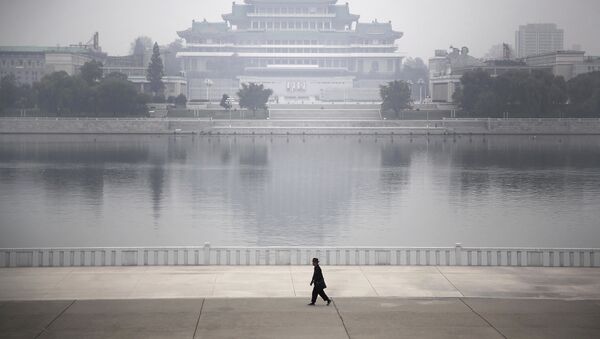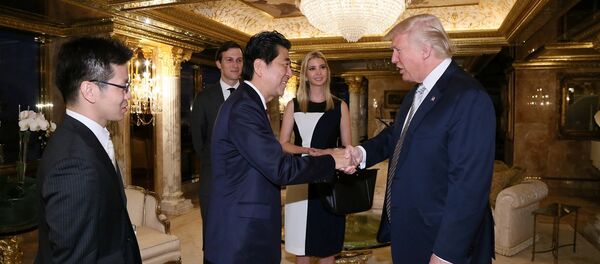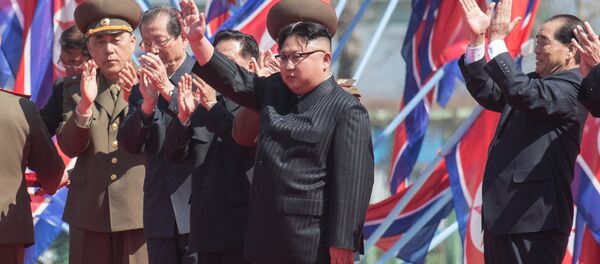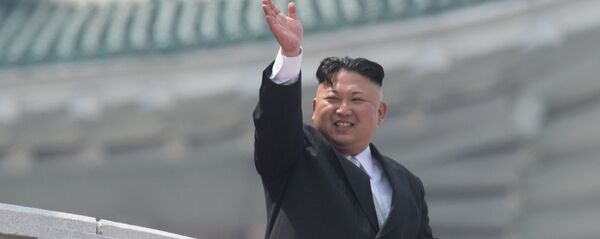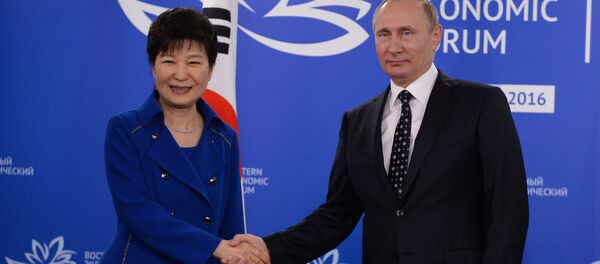Japan has reportedly started preparing a package of its own sanctions against its neighbor after Pyongyang’s launch of ballistic missiles, in the knowledge that it will be unlikely to convince Russia and China to support further sanctions.
Meeting before the G7 summit in Italy that finished on Saturday, Trump and Abe dedicated most of their discussions to the issue, the White House said in a statement.
"President Trump and Prime Minister Abe agreed their teams would cooperate to enhance sanctions on North Korea, including by identifying and sanctioning entities that support North Korea's ballistic missile and nuclear programs," the statement said.
"They also agreed to further strengthen the alliance between the United States and Japan, to further each country's capability to deter and defend against threats from North Korea."
The Japanese Prime Minister however pointed out the need and importance of cooperation with Russia and China in resolving the crisis around North Korea’s nuclear and ballistic missile programs.
"During the summit I emphasized that cooperation with Russia and China is needed to solve the North Korea crisis. I would like to call on all the nations to get united and act," Abe told a news conference at the end of two-day G7 summit, adding that North Korea’s threat was like "an epidemics outbreak that would spread if not treated."
China's UN ambassador said on Tuesday that multiple North Korean nuclear and ballistic missile tests, with no end in sight, show the "very strong" need for new talks with Pyongyang to reduce tensions and try to achieve denuclearization.
Speaking to reporters after emergency Security Council consultations behind closed doors on the North's latest missile test, Liu Jieyi emphasized that all progress with Pyongyang on eliminating nuclear weapons from the Korean peninsula has come through dialogue, "so there's no reason why dialogue is not taking place in the current situation."
Earlier in May, Russian President Putin said that Moscow was opposed to any new countries acquiring nuclear weapons, but that the world should talk to North Korea rather than threaten it.
Speaking in Beijing at the One Belt, One Road Forum, the Russian leader said that nuclear tests of the type that Pyongyang had been carrying out in recent weeks were unacceptable, but that a peaceful solution to rising tensions on the Korean peninsula was needed.
"I want to confirm that we are categorically against the expansion of the club of nuclear powers, including with the Korean Peninsula and North Korea," said Putin, who said any such move would be "harmful and dangerous."
"In this connection, we need to act in a joined-up way, (and) strengthen the system of international guarantees with the help of international law and with the help of the UN Charter," Vladimir Putin said.
"We need to return to dialogue with North Korea and stop scaring it and find ways to resolve these problems peacefully," the President added.
The Russian leader said he thought such an approach was possible because of what he called "the positive experience" of holding talks with Pyongyang in the past.
"If you recall, there was a time when North Korea announced it was suspending this kind of (nuclear) program, but unfortunately certain participants in the negotiations process did not have enough patience. I think we need to return to this," he explained.
North Korean Leader Kim Jong Un supervised the tests of the new anti-aircraft defense system amid the escalation of the crisis on the Korean peninsula, Korean Central News Agency (KCNA) reported Sunday.
The North Korean leader was pleased with the test, according to state media, and ordered its mass production.
"This weapon system… should be mass-produced and deployed all over the country like forests so as to completely spoil the enemy’s wild dream of air supremacy," KCNA quoted Kim as saying.

